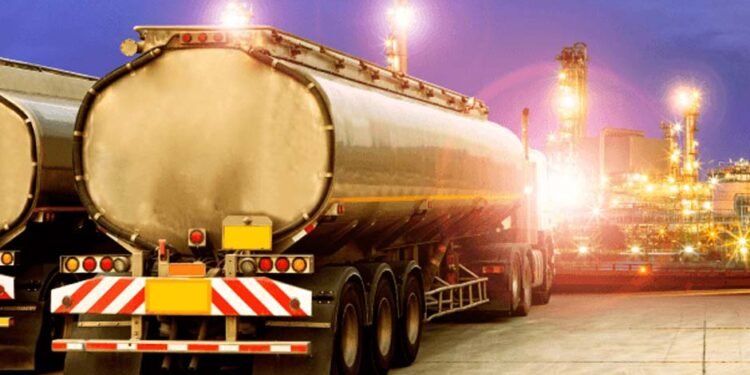Technological advancements have transformed the field of off-road diesel delivery services.
This transformation represents a fundamental shift in how fuel is delivered, measured, and managed.
We can gain a comprehensive understanding of the interaction between technology and diesel delivery services by investigating each critical aspect of this advancement.
Enhancing Precision with GPS and Telematics
Advanced GPS systems enable precise location tracking of delivery vehicles, optimizing route planning and lowering fuel consumption.
Telematics, or the long-distance transmission of computerized information, enables real-time monitoring of various vehicle parameters such as fuel levels, engine performance, and vehicle diagnostics.
This technological symmetry ensures on-time deliveries by anticipating potential delays such as traffic congestion or inclement weather. Furthermore, telematics provides historical data that can be used to improve future delivery schedules and routes, greatly increasing the dependability and efficiency of off-road diesel services.
Automating Inventory Management Systems
Automated inventory management systems continuously monitor fuel levels in storage tanks using sensors and data analytics. These sensors’ real-time data is invaluable in accurately forecasting fuel demand.
These systems reduce the risk of overstocking and stockouts, ensuring that the right amount of diesel fuel is always available for delivery. This optimization reduces operational disruptions and improves supply chain efficiency. Furthermore, potential issues such as fuel theft or leakage are identified and addressed before they cause significant losses.
Digital Platforms and Mobile Applications
Digital platforms and mobile applications allow service providers and customers to communicate seamlessly by providing features such as real-time delivery tracking, instant notifications, and online payment options. Customers can easily schedule deliveries, specify exact delivery locations, and select the type of diesel required—all from their smartphones.
Mobile applications greatly simplify the ordering process, eliminating the need for phone calls or in-person bookings. This digital shift not only improves customer satisfaction, but it also allows service providers to manage orders more efficiently, lowering lead times and operational costs.
Advanced Safety Measures and Compliance
Modern delivery vehicles include sophisticated safety features like automated braking, anti-lock brakes, and real-time driver monitoring. These features ensure that deliveries are both timely and safe.
Furthermore, technology facilitates adherence to stringent environmental regulations. Sensors and automated systems continuously monitor emissions and fuel spills to ensure safety and environmental compliance. Compliance is critical in an industry where violations can result in severe penalties and reputational damage.
Leveraging Advanced Analytics for Decision Making
Service providers can gain actionable insights into customer behavior, market trends, and operational efficiency by leveraging data. Predictive analytics, for example, can forecast fuel requirements using historical consumption patterns, weather forecasts, and geopolitical factors influencing fuel supply.
These insights enable more informed decision-making, allowing businesses to adjust strategies ahead of time, maintain competitive pricing, and improve customer service. Data analytics enables businesses to remain agile and responsive to constantly changing market dynamics.
The Role of Blockchain in Enhancing Transparency
Blockchain technology, known for its security and transparency, is making inroads in the off-road diesel delivery industry. Blockchain provides a decentralized ledger that tracks every step of the fuel delivery process, from sourcing and refining to delivery and payment. This level of transparency is essential for maintaining trust in the supply chain.
Immutable records on the blockchain improve accountability and prevent fraudulent activities like fuel adulteration or inaccurate billing. Blockchain technology assures stakeholders about the diesel delivery process’s integrity by providing a clear and verifiable audit trail.
Conclusion
Technology is undeniably transforming off-road diesel delivery services in a variety of ways. These advancements have significantly improved operational efficiency, safety, and transparency, from increasing precision through GPS and telematics to revolutionizing customer interfaces with digital platforms. Automated inventory management systems, advanced safety measures, data analytics, and blockchain are all changing the industry landscape.
These technological advancements make off-road diesel delivery services more dependable, efficient, and compliant with safety and environmental regulations. As the industry evolves, integrating new and emerging technologies will become critical for maintaining a competitive advantage and meeting the market’s increasingly sophisticated demands.
To summarize, the technological transformation is more than just an enhancement; it is a fundamental redefinition of off-road diesel delivery services, positioning them for a future of unprecedented efficiency and dependability.












